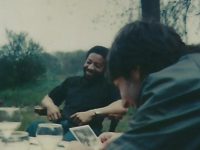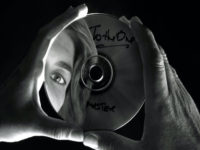A band made up of the godfather of fusion guitar, the undisputed greatest innovator of the electric bass guitar and the best drummer of them all is a fusion jazz dream. And for the very briefest of time, John McLaughlin, Jaco Pastorius and Tony Williams formed a power trio to top all power trios.
Jaco dubbed it the “Trio of Doom.” It became more fittingly the “Doomed Trio.” Here’s how it happened: In 1979, the U.S State Department sponsored a trip of prominent American musicians to play in Havana along with Cuba’s finest in a musical summit event formally called “Havana Jam,” and nicknamed the “Bay of Gigs.” All of the American artists, from primarily the jazz, fusion and rock genres were provided by Columbia Records, who organized the three-day event. Williams, McLaughlin and Pastorius (through his membership in Weather Report) were all Columbia recording artists at the time and were all going to Havana.
All three had played or jammed with one other, but never all three together. They decided that since they were all going to be there, anyway, to get together for a single gig during the event, limited to only 25 minutes. Astute fusion fans will already note that Williams and McLaughlin made up two thirds of the lineup of the original, seminal Lifetime band a decade earlier. But adding the hyper-talented but unpredictable Jaco Pastorius to the mix was guaranteed to make this combo stand apart from the one where the bottom was being provided by Larry Young’s bass pedals.
By John McLaughlin’s account, rehearsal went well, and the live sets kicks off with a Tony Williams drum solo lasting just over two minutes. The polyrhythms, the tonal workings of the toms-toms and the cymbals crashes were all on display, the latter a surprise to hear so well because according to McLaughlin, the cymbal mics were turned off. Credit him and engineer Marcus Wippersburg for painstakingly restoring that previously lost layer of the recording.
Pretty soon, Williams settles into a kinetic 4/4 cymbal-and-snare ride that was still so familiar from his earlier recordings with Miles Davis, with Jaco and John together introducing the head for John McLaughlin’s “Dark Prince.” McLaughlin is soon soloing with abandon like it’s 1970 all over again. In the meantime, Jaco has cranked up his amp, gone off on another chord, and begins to let it all hang out, Jimi Hendrix style. It’s an odd circumstance: two guys playing together and another (Jaco Pastorius) offering something incompatible and yet all three are playing their asses off.
The next selection was Jaco’s, “Continuum” from his debut solo album of 1976. It’s a pretty, flowing melody that showcases Pastorius’ more tuneful side, and even though Williams and McLaughlin were royally pissed at him for the prior tune, McLaughlin manages to give him sympathetic support. Williams sounds like he’s still reeling a bit from Jaco’s earlier adventurism.
“Para Oriente” was Tony Williams’ contribution to the set, a mid-tempo funky number with a straight jazz middle that doesn’t seem to go anywhere. The set wraps up with another John McLaughlin tune, the rocking “Are You the One, Are You the One?”, and the give and take between the two guitarists work much better than on “Dark Prince.”
Columbia was eager to include this gig as part of a planned release documenting the Trio of Doom’s Havana Jam as a whole, but McLaughlin immediately vetoed that. He believed, along with Williams, that Jaco had gone off the mark during the performance too many times.
Determined to get this threesome on the record, the record company coaxed them into the studio just days later to re-record the songs, and three of the tracks ended up appearing on Columbia’s two double LP releases of the Bay of Gigs, called Havana Jam and Havana Jam 2, both released later in 1979. The studio version of “Dark Prince” released on Havana Jam was even enhanced with live crowd noise to make it appear it was recorded at the Cuban event!
The unaffected studio version of that song is clearly lacking the schizophrenia of the live version, but some of the immediacy is lost with it as well. “Continuum” in the studio benefits from Tony’s tighter playing. After a couple of false starts, the third take of “Para Oriente” is still sounding just a little bit rough around the edges. There was clearly some more studio work left to do, but the sessions ended abruptly on a sour note.
As McLaughlin later related:
“So we all went into the great CBS Studio on 52nd Street where we did all those great things with Miles — In A Silent Way, Bitches Brew and all of that. So we start re-recording the tunes and in the meantime, Tony’s not looking at Jaco. I mean, forget about speaking, he’s not even looking at him. And Jaco’s already very nervous. So we start playing and we did my tune again. So we do one take and we go in the control room to listen back and Jaco says, “Well, I think we can do it better.” And all of a sudden Tony jumps in front of Jaco and says, “Better’ Better, motherf****r’!!” He pushed Jaco up against the wall. I had never seen Tony angry but that was like a little volcano action, man, I tell you. And Jaco’s like…”Hey man, I’m sorry, man, I’m sorry.” Tony didn’t hit ’em or anything, but when Tony got mad you just get out of the way. He had Jaco up against the wall and Jaco was like apologizing profusely. He knew he f****d up bigtime. So after 10 minutes of Tony blasting him with both barrels, Tony went into the studio and destroyed his drumkit. (laughter). And I said, “You gotta record with this!” He destroyed his kit and walked out of the studio and that was it. What a shame. But hey, who’s perfect in this world?” — Bill Milkowski interview of John McLaughlin
In the end, there’s less than forty minutes of music left behind by the Trio of Doom with only four distinct songs, none of which runs over six and a half minutes. With Jaco Pastorius and Tony Williams dead for decades now, John McLaughlin has had final say over the full release of this material and he’s resisted until now. As the producer of this album, McLaughlin worked meticulously with Wippersburg to mix out as much of the recording imperfections as possible.
While there’s some phenomenal playing squeezed into this brief playing time, ultimately this remains a collection of jam sessions. Some students of the drums, bass and electric guitar will lap up the chops on display, but those who dismiss seventies fusion as a bunch of high-falutin’ wanking have another exhibit with which to bolster their argument. Your enjoyment of this album largely depends on which side you fall on that debate.
Given the short amount of time they had and never really getting on the same page consistently, Trio of Doom only hints of the promise had the protagonists had taken the time to settle up their differences and polish their product. But thanks to the heroic efforts of John McLaughlin and Marcus Wippersburg, we can at least dream about that promise with some basis in reality.
- Claudio Scolari Project – ‘Bloom’ (2025) - June 12, 2025
- Denny Zeitlin – ‘With a Song In My Heart: Exploring The Music of Richard Rodgers’ (2025) - June 4, 2025
- Ches Smith Quartet – ‘Clone Row’ (2025) - May 30, 2025




